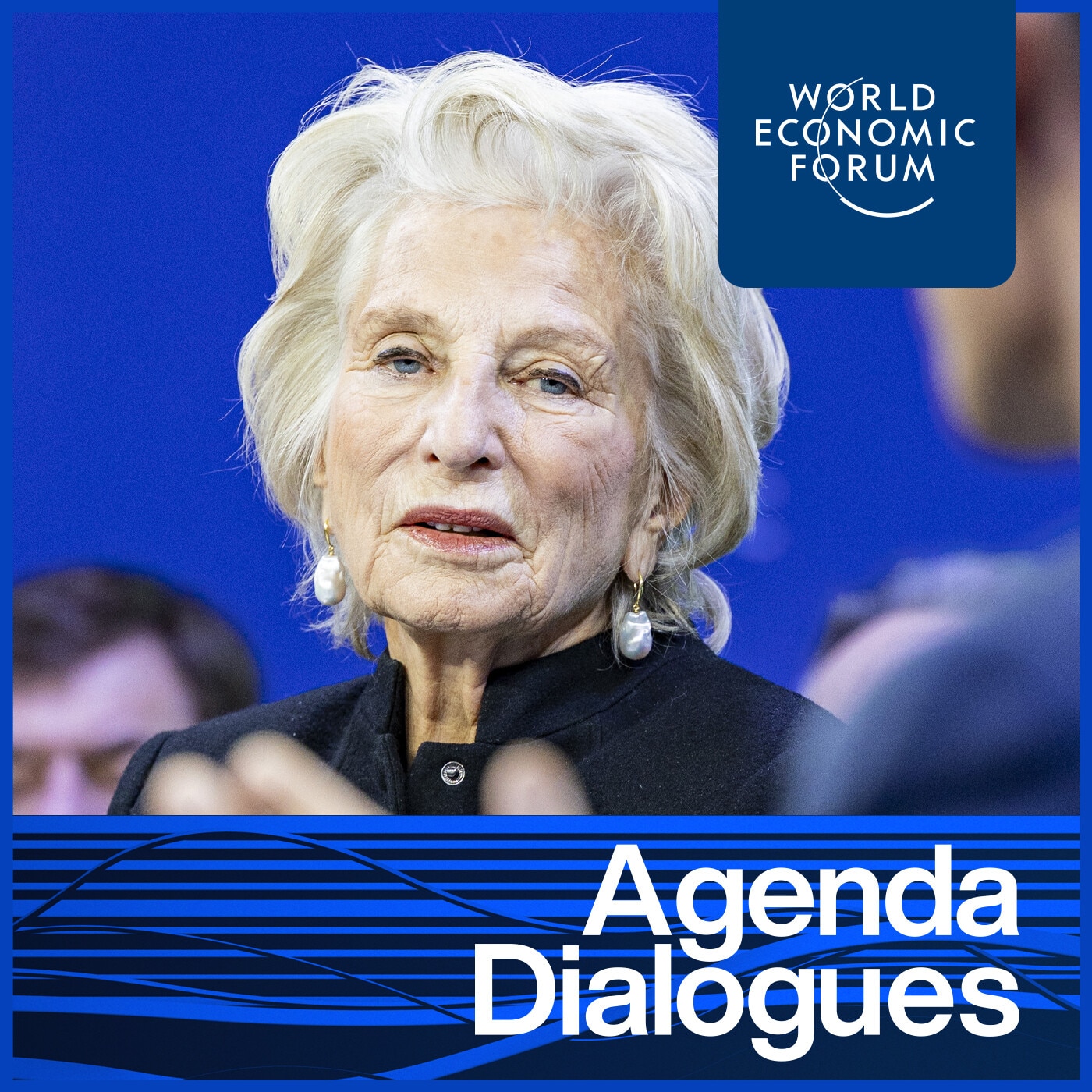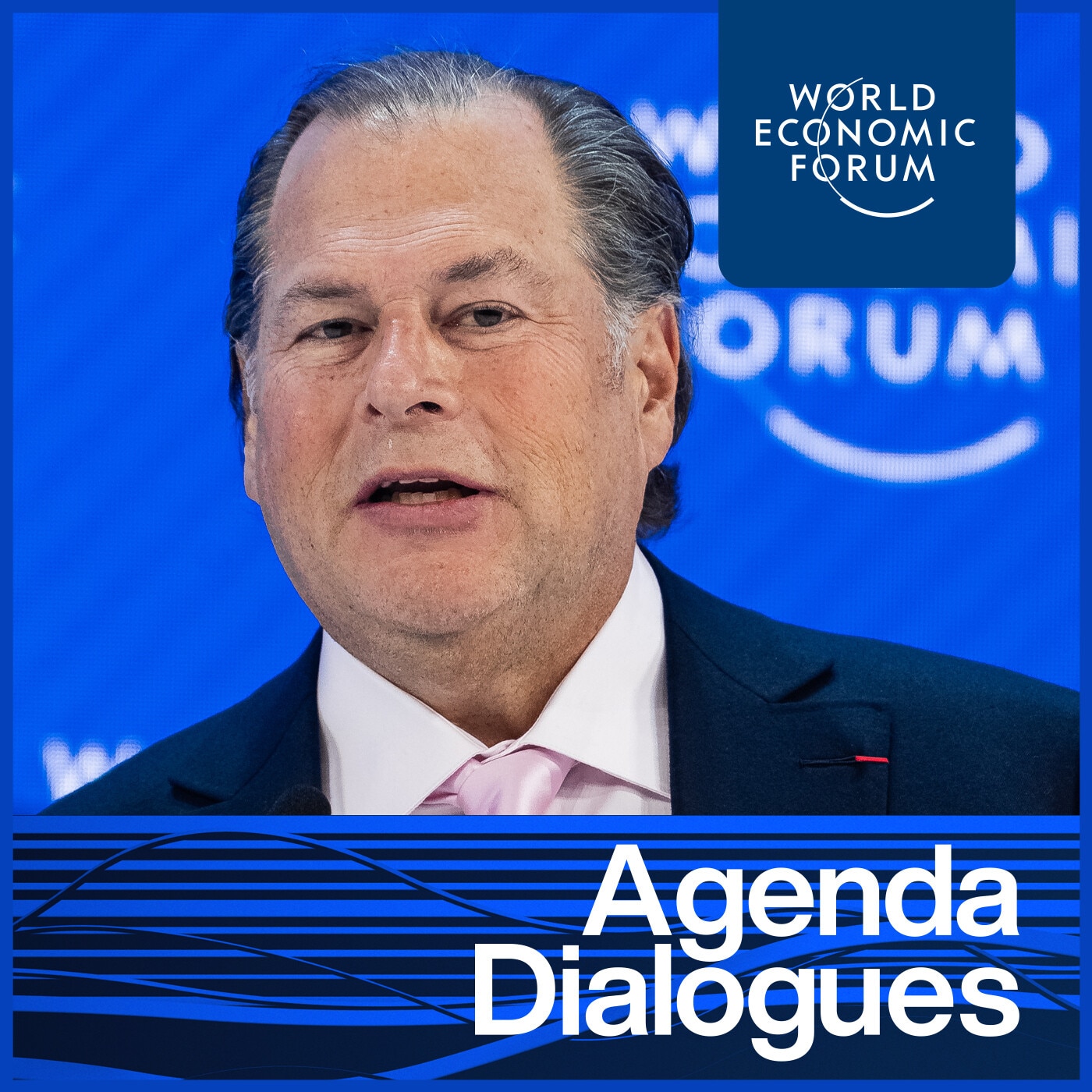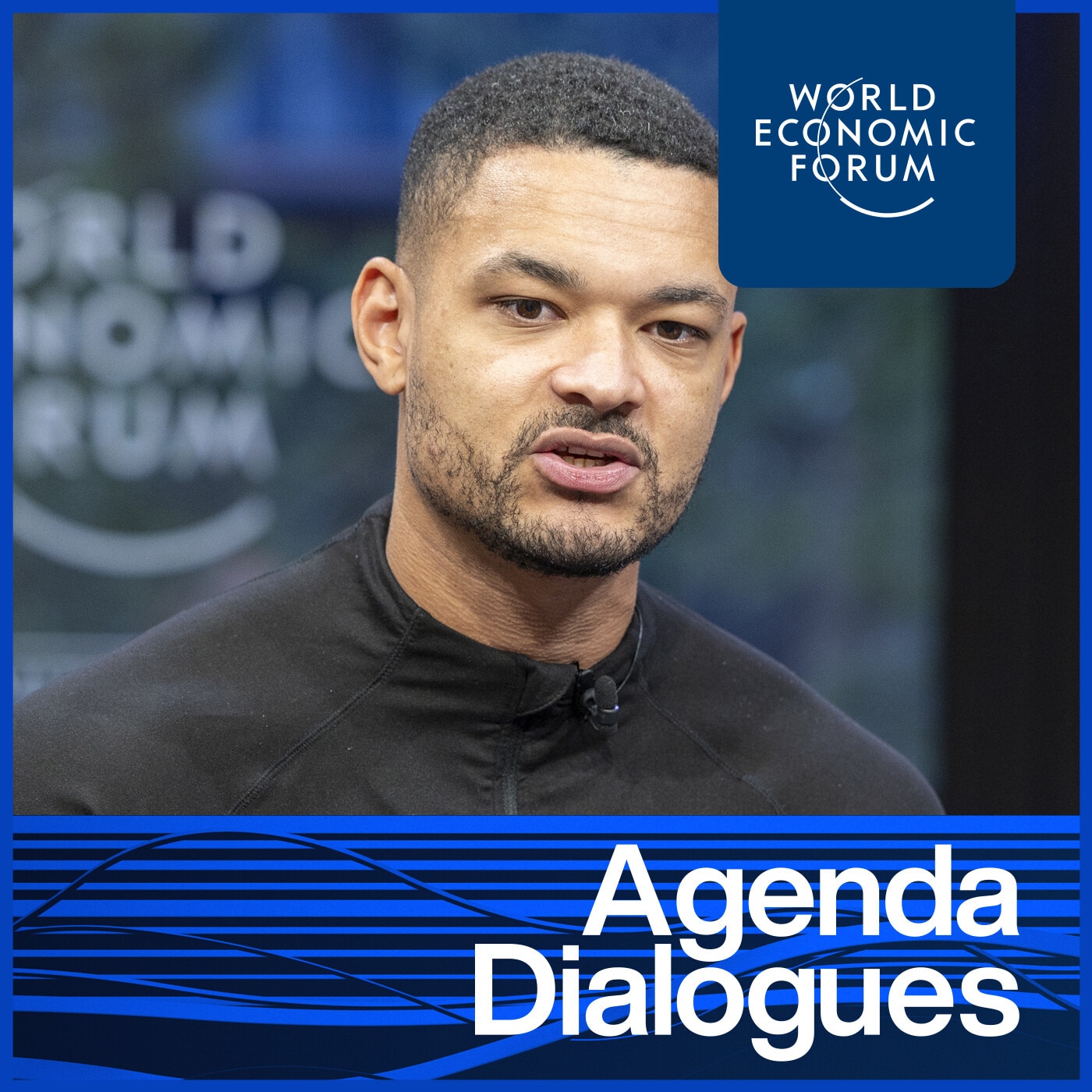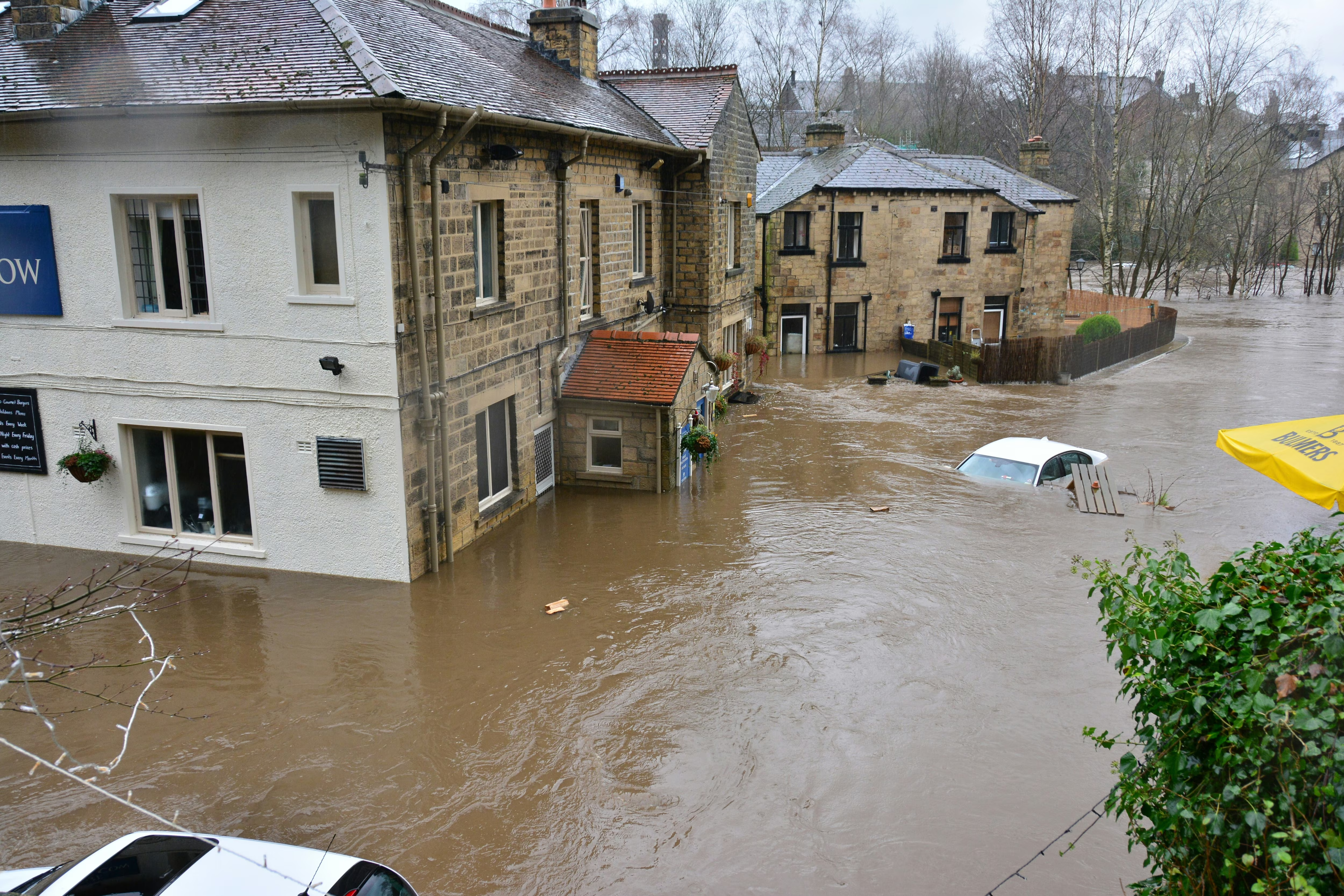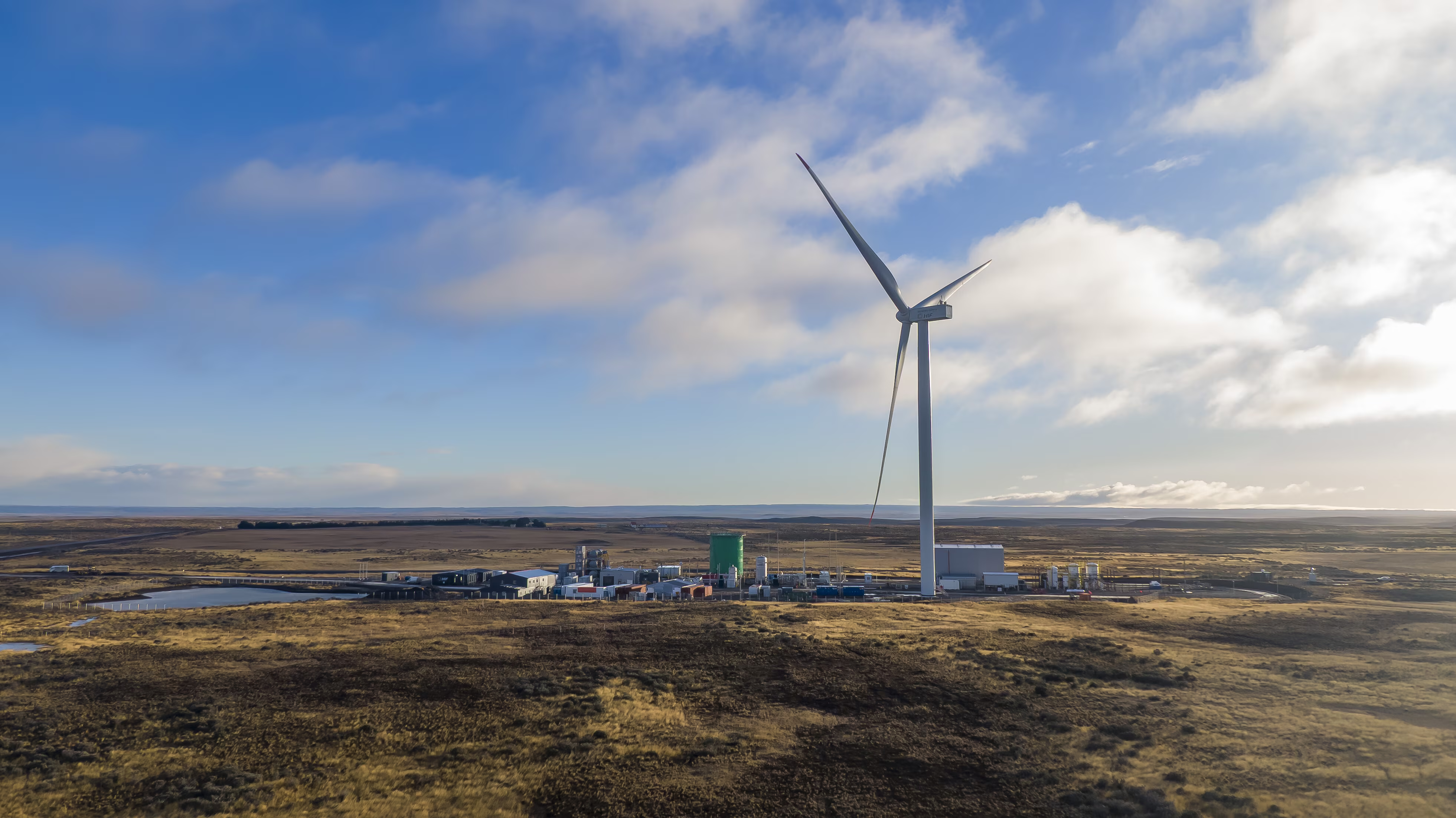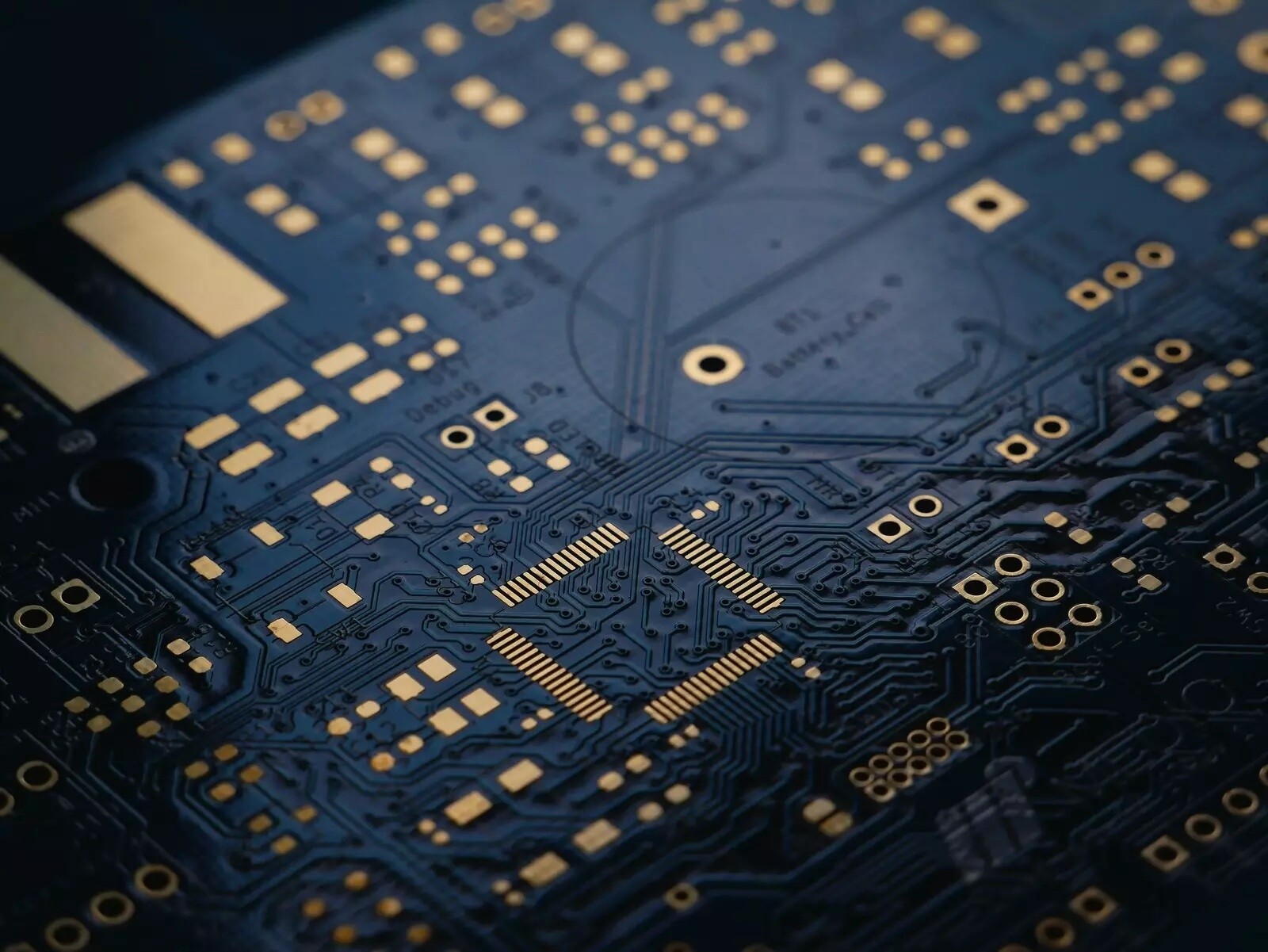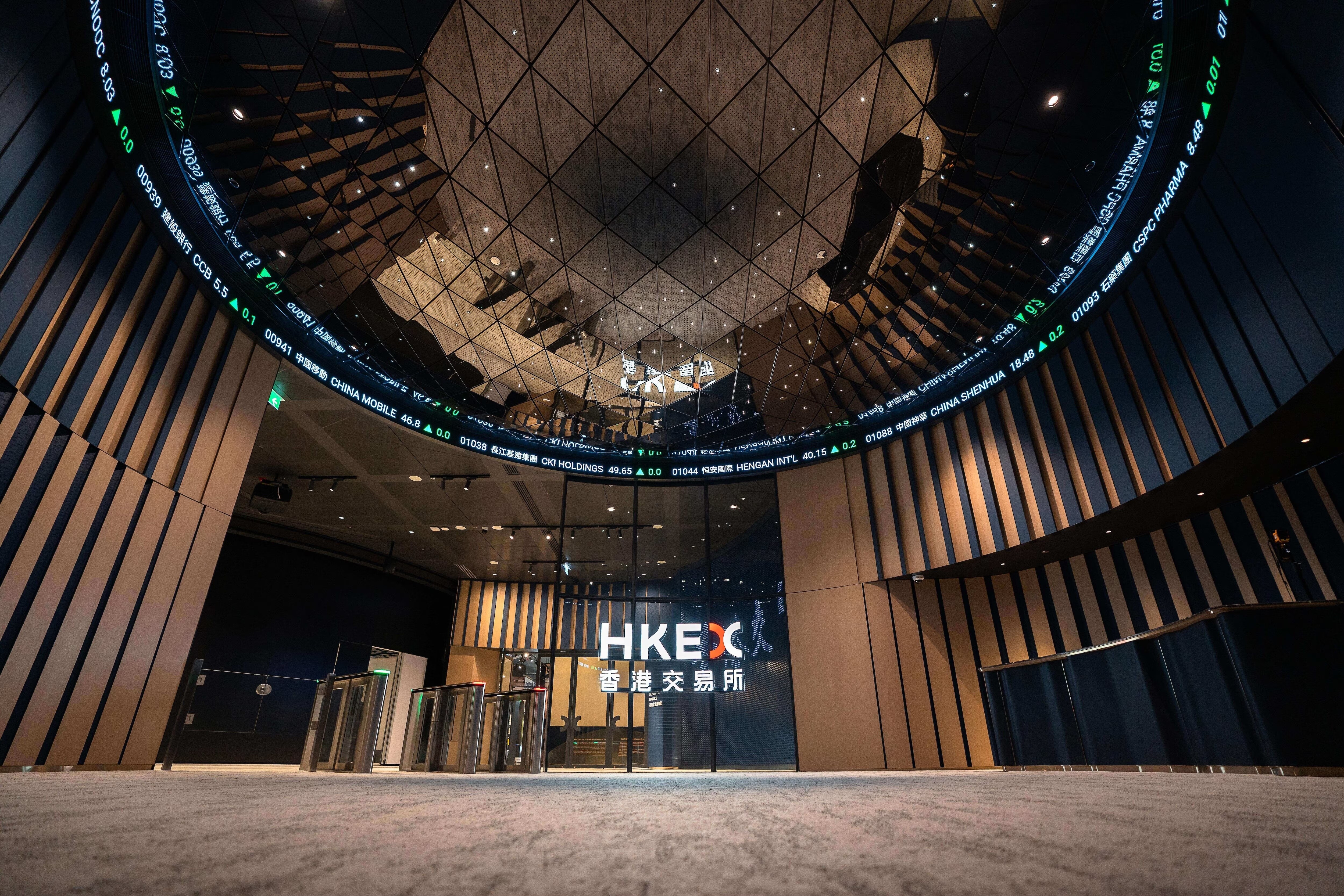AMNC24 - Driving Growth in the Intelligent Age
Transcripción del podcast
Mirek Dušek: Hello everyone here. Hello, everyone too online that are watching us. A warm welcome to this closing segment of the 15th Annual Meeting of the New Champions here in Dalian. I'm Mirek Dušek, managing director of the World Economic Forum.
The closing segment is going to have three parts. First, we will have a dialogue here on stage. Then I'll welcome here the Mayor of Dalian, the Vice Mayor of Tianjin. And then we will have the cultural closing as well.
So let me first start with the dialogue. We are here for this session under the theme, "Driving Growth in the Intelligent Age." So you can see already that it is very forward looking. We, as always, we try to recap but we also try to use these closing sessions to really look forward and to answer, "so what?" So what are we going to do about the things we have learned, the things that have been raised here.
And you may also notice that it is quite positive. So we have, of course, here during the proceedings, mapped a lot of the challenges. Back in January, we gathered under the theme, "Rebuilding Trust." Economic fragmentation, the threat of economic fragmentation was in many sessions here. So I just wanted to make sure, you know, this is, of course, something that has been a focus and will remain a focus because this is a reality that we live through.
But we thought that we should use this session to kind of help us with a can-do message. And again, answer kind of so what? So what are we going to do to drive prosperity, inclusion, sustainability in this more, maybe complicated world that is out there.
And so for that discussion, I'm joined by leaders that you've seen in other panels. We have make you work here in Dalian. Thank you so much for your engagement. So this is an opportunity, again, to reflect but also to really chart the path forward.
I would like to first welcome them all. Dr Zhu Min, vice chairman, China Centre for International Economic Exchanges, People's Republic of China; you're also member of the board of trustees of the World Economic Forum. And of course, you were deputy managing director of the IMF and you were deputy governor of the of the Central Bank. A warm welcome to you Dr Min.
Zhu Min: Thank you.
Mirek Dušek: I would like to welcome Melissa Lott, professor, Climate School, Columbia University. A warm welcome to you. Sir Robin Niblett, distinguished fellow at Chatham House in the United Kingdom. Nancy Xu, chief executive officer, Moonhub, USA and technology pioneer of the World Economic Forum and warm welcome. And last but not least, Uljan Sharka, chief executive officer, iGenius in Italy and you are a global innovator of the World Economic Forum. Warm welcome to all of you.
And let me kick it off with you, Dr Min and I'll just have a very simple question. So we are here to talk about how do we drive growth in the intelligent age. So in the intelligent age of energy transition technologies, of course, digital technologies.
How does it look from China? How is China going to drive that growth in the intelligent age?
Zhu Min: First of all, it's Dr Xu, not Dr Min. Min's my first name. But anyway, it doesn't matter. Thank you.
Mirek Dušek: Apologies.
Zhu Min: Thank you. No, I think we have to make artificial intelligence a growth story. I think it's the most important thing for make that thing happen, we need all the parties played more the same role, more in the same direction. I think it is the most important thing we understand in a green transformation infrastructure, EV, all those things.
But I think the most important thing there is for the industry level, we need application. Application, application, application. Because, in the broad sense, we haven't seen artificial intelligence transform into the productivity yet.
So the technologies there, we need to move into the real field. So that's the companies' industry need to have a data experts form their own APP and transform that technology into the daily business, into the productivity. I think this is the most important thing.
On the individual base, learning the artificial intelligence, try to reskill ourself, I think is most important. Obviously, the government should do more. Before, the government should play a strategy but provide infrastructure is also important. And globally, I think global cooperation obviously is the most important thing.
So everyone should play their role. In China, I think the most important thing is we have a vertical side of all GPT models. So application is the key because the broad, the rich scenarios and the fields is application is everywhere. There's a push on this technology application or implication in all different sector, different area. So more sector is moving fast. I think if you say anything, China can tell war in this intelligent war how China move forward, it's really application in the industry in company level.
Mirek Dušek: Thank you. We had a lot of discussions also on the economic relationship between China and the United States and China in Europe. So if I could follow up with you, a little bit counterintuitive, because people like to always point to the problems and say, okay, how how do we stop the bleeding? How do we stem the fragmentation?
But if I were to flip it, where would you see or where would you urge more cooperation? In these economic relations with the US or with the EU, where is cooperation actually possible?
Zhu Min: Well, I think the good thing; so, we observe in both China and US is on the dialogue on the artificial intelligence issue. I think this is a very, very important. And I also observed the various structural conversations, and particularly this is to conjoin between China and the Europe.
I think a proper communication building the trust is the most important thing. I think it is very important. And that also observes on the company level a lot of cooperation on technology transfers, learnings, investments and all those things are happening. I think this is a very helpful and very healthy.
Mirek Dušek: On the EU front, if I could ask you: so, we just saw, of course...
Zhu Min: We have all of the people here.
Mirek Dušek: I have one more, one more. You are moderating. On the EU front, I of course, I know, maybe there are things you don't want to say but if you could tell us. Of course, we have the formal talks now established or signalled after the phone call between Mr Dombrovskis and his counterpart here in China on the famous issues of EV.
So are you confident that we will see some kind of a new understanding on how to collaborate better on the green economy between the EU and China?
Zhu Min: I'm confident because the reason EV in China grow very strongly based on two things. One thing's technology. One thing's about energy efficiency. So that's to make the Chinese EV much lower cost than most of a brand in the world today. But China move too fast, too big. So, we'll have to take the other company countries' consideration into the picture as well.
So I think we will see cooperation in the company level and the negotiation in the authority level is a happening both. Like we'll see more thoughtful technology licensing happen. So I call the reverse. So, Chinese technology export to the Europeans and investments, reverse investment, trying to receive a lot of investment from Europe in the past but not China. Start to invest in those particular areas in Europe as well.
So I think you will see more those things to happen. And the dialogue we just started between the China and the Europe. I think that's a very healthy and a good start.
Mirek Dušek: Thank you so much. I'd like to move to Sir Robin Niblett. You have a book out on the US-China relationship. You also, I know doing a lot of research on the EU-China relationship. We had yesterday, a dinner where I think you shared that you wanted to force to sell intellectually, to come up with things where we should have incentives in terms of cooperation.
So how would – with that maybe more positive outlook, a can-do outlook in terms of where we could cooperate – would you mind covering both angles, the US-China angle and the EU-China angle?
Robin Niblett: Luckily, we've only got five minutes, so two or three minutes to do it in because those are big topics. But again, it's a great pleasure to be on this closing panel and great pleasure to be with you here in Dalian.
Look, I think the first place I start with, I think you've done a very good job here at providing the opportunity for us to be frank about the differences and the difficulties. And Xu Min was just referring to them a minute ago and I was starting in the same place as him, which is the lack of trust is the most dangerous thing.
My biggest fear is about the idea of self-fulfilling prophecies. And our politics often create them and have a rational cooperation should be, especially, especially given the global challenges we face at a planetary level, together. Humans are frail in these things and we can be emotional. We can be driven by myths. So avoiding those are critical. And I think the high-level dialogue, the bilateral dialogues that have been happening, especially between the US and China, are an incredibly important bulwark to try to prevent things from getting worse. So that's the first point I think I want to make.
I think the other element we need to do here, there's been a lot of talk about a small yard with a high fence. You know, the idea of creating protected zones where technologies are not shared, where there is an element of decoupling taking place. Of course, the worry we have here is, you know, what do you define as linked with security? And my concern is there's been a sort of expansion and no one quite knows where the boundaries are.
So I think one of the most important things we need to do is to be very clear about which technologies are linked to our security competition, which is real and unavoidable and which are not? Where can we be open? And I was, you know, I understand why quantum or semiconductors, I, even maybe some ones that are not inside this famous, fenced-in yard, such as, you know, cloud computing, biotechnology.
I can see why some of them have been brought in there but I think biotech a good example. Biotech is a space where there should be real opportunities for cooperation, not just between the US and China but between Europe and China as well, if we're going to face common health challenges in the future. And I think that should be an area for cooperation between United States and China and Europe and China as well.
If we're going to deal with antimicrobial resistance, the next big challenge coming down the pike, we're going to need to bring together the brilliance of Chinese scientists, American scientists, European scientists and others from around the world, together. So I think trying to be clear and clearer about the boundaries. Because we're in for a new geopolitical competition. What worries me the most, here are no rules to this new geopolitical competition, and there are no clear boundaries and in that environment, it makes it very difficult to cooperate and difficult for technology and technologists to innovate the way they want to serve. That would be the next point.
I agree again, trade. The tensions are real. You can't escape them. And we're seeing them there very much in the new US, the latest US election that's taking place. We'll be seeing this very clearly. And I think, Eswar Prasad has put it very well: stop the geopolitics a zero sum, economics feels zero sum for many people these days.
But again, just to risk of repeating, I think there are great opportunities here. And this point has been made in earlier panels I have the privilege of being on as well that even if trade starts to get more difficult, foreign investment should be an area where you can meet those domestic political needs by having jobs at home, having technology being developed at home, it overcomes some of those fears about winners and losers, that human and others have been referring to as well.
And so I think, you know, that's a real opportunity. And the last one I really want to focus on here is I think that we're waking up late in Europe, in particular to the importance of foreign investment in Africa in countries across the Global South. China spotted it way ahead of us. Unfortunately, it's a slightly competitive environment. What was the Belt and Road Initiative is now the G7's Global Partnership on Investment and Infrastructure. But actually, if we're competing in trying to help countries across the Global South move up the value chain, have the infrastructure they need, that is actually a positive outcome.
So even if we're competing, competition can be good economically. It can also be good, sort of geo-economically. Because if you are in Southeast Asia, if you are in sub-Saharan Africa, if you are in Latin America, having us competing over your future is not a bad thing. It gives those countries an agency, which they've not had in the past, in previous geopolitical competitions. So I think there's the scope here, to be able to be optimistic, even in this more worrying environment.
Mirek Dušek: Thank you. If I could just follow up very quickly. I know you work a lot on Europe, so there's this concept of European strategic autonomy, sovereignty. People are starting to talk about a more muscular Europe that feels squeezed between the United States and China.
Is this a pipe dream or is this actually a realistic, in your view, to really when you see all these announcements of joint defence procurement and reshoring of different manufacturing facilities that we didn't used to have, now we would have them back in Europe.
How do you see in terms of how realistic this actually is and how needed this actually is?
Robin Niblett: Well, there are there are different dynamics. I mean, again, staying on the negative, I'm afraid a little bit here. You cannot escape the fact that Europe is at war. We didn't think that would happen in my lifetime. And you know, sometimes I think that's not always fully understood, if I may say, here in China, you know, why are you involved in a new Cold War? What's going on? You know, we're past that. Well, it certainly doesn't feel like it in Europe.
And so but at the same time, I think we are now a little distrustful of how much we can rely on America. Donald Trump woke Europeans up to the perversity of the fact that we were importing a lot of our energy efficiency or energy low prices are probably a better way of putting it, from Russia. And then using it to export cheaply to China. And of course, Donald Trump, who's a man who likes calling things out, called it out for that perversity.
But there's a great acronym in Europe, TINA. There is no alternative. And Europeans have woken up to the fact that there is no alternative but to invest more in our security. We're probably going to have to take responsibility for what is going on in Ukraine, America, whether it's the Biden administration or Trump administration, they know it's our responsibility more than before to look after European security. They are inevitably more focused on the Indo-Pacific and on China.
So I think we are stepping up all of the steps I see so far. Even Britain is being drawn more into those conversations and we're likely to have a new government in a few weeks time. And that is a government that will be looking more towards the European Union for partnerships in the EU. Again, there is no alternative. It's going to even have to look at Brexit Britain as a partner.
I think as well – and this is where it gets very interesting – we do have to make a choice if we're not going to be importing energy from Russia. Yeah, but we do not want to create a new dependency on China for batteries and so on. Then we are going to have to think about what is that relationship we do.
And this brings me back to, I said before, we will have to bring China in as an investor and this will be a difference to America. America doesn't need us to invest. So I think there are options here and there's no alternative.
Mirek Dušek: Thank you so much. Let me move to a Professor Lott at Columbia University. You know, you really are one of the leading experts on the intersection and the nexus between energy and climate and nature. I'll have a stat here from 2021 from IEA. It could still be relevant. Half of the world's emission cuts will require tech that isn't commercially available yet. So maybe we have a few more of those stacks now commercially available but I think we're still moving in that continuum.
So it underscores, of course, the importance of innovation and technology and deploying it for energy transition outcomes, if you will. This summit is full of innovators. You may have seen the ups and different very kind of crisp sessions focusing a lot on the state of play of different technologies. And a lot of them were actually energy-related.
So there was a state of play on where we are with hydrogen, state of play where we are with small modular reactors. Now we're back to nuclear. A lot of excitement there and I could go on and on – batteries, etc. So if you could just for us, if you were to kind of select what are the things that we should be paying attention? Maybe technologies that were underpriced few years back that are now exponentially going and would have an asymmetrical positive impact on the energy transition?
Melissa Lott: Yeah. great question. So a couple of different things to think about with the asymmetrical impact on the transition is who's being impacted by it. So when you talk about commercial viability, it's very different in places that can afford honestly a big bill at the end of building something out versus those that are facing really high interest rates and are saying, how can we build out this baseline infrastructure? They're very different conversations.
Around the technologies, we often talk about electric vehicles and batteries. I could spend way more than the time we have going through the exciting things that are happening there and that are happening here in China. But I'll go beyond that and say some of the great innovations I'm seeing are not just around AI technology, around energy storage, where a lot of exciting stuff is happening, or even supply, where things like small modular reactors come into play. But it's actually how we make the whole system efficient.
And I'm going to skip a bunch of my AI comments because I know who's sitting on the other side of me. But what I'll say is, when we look at digitalization and AI and its potential to increase divides and gaps, it's absolutely real in there. But there's also a tremendous potential to help others use our resources more efficiently from supply through all the transformation, through demand and to actually transform how we use energy across all the different technologies that we're going to use in the future.
So I'm excited about storage. I'm excited about supply. I'm excited about the different things that are more run-of-the-mill, like how we can get clean cooking into homes. There are some great innovators in the crowd who are working on that. But really, I'm thinking about the system and how it all ties together.
The other he said, I'll say, as we know that in the energy transition, we need to move more quickly if we want to protect human health and the environment. These things are inextricably linked. There's all the different sessions on the nature work highlighted here in these meetings. But within that, it's a question of how do we move quickly at speed and scale and move everyone forward quickly. And I'm excited about the technologies that provide communities access to information so they can build things more quickly.
In my home state of Texas, what this means is a town of 36, in the middle of rural West Texas can think about permitting out a battery storage system quickly. When they have no local expertise, they can find resources they need because they have access to the information.
Mirek Dušek: Thank you. If I could just follow up quickly on, popular now, SMRs and help us understand why is it such a game changer? Because some would say they've been around for a while. So what's the big deal? Why is it such suddenly a game changer? People are talking about it and it seems like a lot of people are really trying to make them work.
Melissa Lott: I'll highlight two quick points. One, when we look at how you get to an affordable, reliable and clean electricity system and electricity is a huge player in getting to net zero and solving climate change.
When you look at that, you find you need a combination of technologies. You want variable renewables, wind and solar and man, they are cheap. Let's use them to complement them with energy storage. But if we don't complement them again with firm dispatchable power, we end up with either an unaffordable or unreliable system, or worst case, we end up with both of those things which nobody wants.
We have spent a lot of time on variable renewables, the first bucket, a lot of time on storage. We need more in both but a lot of time, we have not spent as much time on the firm power part of this component. And that's where SMRs – small modular reactors – come in. The excitement there is: could we make nuclear actually more affordable and make it easier to deploy in safer ways that have less negative impacts on the environment, whether it's less water use. Anyone who's seen a nuclear power plant, you probably saw a lake next to it, right, because you needed that. So, it helps us with trade offs.
Mirek Dušek: Thank you so much. Moving to, Nancy Xu, chief executive officer, Moonhub in the United States, in California. So, Professor Lott saved the AI question there. I did wanted to ask about kind of the feedback loop between, of course, AI and energy but maybe next time.
If I could ask you, one thing people say about AI is that, of course, it was a dominant theme here. It was a dominant theme also at the annual meeting in Davos in January. And then they say, okay but do we have use cases and is it going to be like with some other technologies.
Was there a lot of momentum. But then actually, when it came to use cases, well, maybe we were a little bit disappointed a few years down the line. So I think you may think it's a little different this time. Could you just give us your view on that?
Nancy Xu: Absolutely. Again, thanks, everyone, for having me here. And, you queued it up perfectly for me Melissa and I appreciate that.
So I think today there are a lot of interesting use cases for AI and in particular, actually, if you ask me, five years ago, when I was doing my PhD at Stanford in the space, I would have thought, you know, the technology is getting better but I would have never thought that we would get to a point where double-digit percentage of the jobs that we see in the world today will likely see significant automation in the next 5 to 10 years. And in fact, I would actually go as far as to say, I think right now, the technology is outpacing our ability as a society to actually implement at an applications level.
Many of these technologies, and I think one of the big challenges will actually be supporting innovation, entrepreneurship, so that we can get those technologies out there doing real-world applications sooner. And I think we have three big levers to actually do this. The first is talent. We need more talent. We need to upskill people. And with AI, we will get to a point where we will see a redistribution of talent and work. And in the United States and abroad and Europe, Asia and we need better societal systems to help people actually find those new opportunities.
The second lever is the technology itself. I do think we will need another step function in sort of the foundational models technology to get us to a place where we can see the next great breakthroughs inside AI and but already today, if you look at technology, right, I can help us build better solar cells and help us build better battery technologies.
I have a tree in my front yard that is genetically modified to draw down more carbon. That is and it was designed with AI, you know, more efficient data centres. And of course, is the question of sort of bias and fairness. And I think a big part of going back to the talent piece is AI gives us an opportunity to think about a more equitable transition for the workforce and what that could look like.
And then the third piece is innovation. So, how do we get AI into more applications in a trusted and fair way that people can believe in the technology? And, you know, on Moonhub we build AI recruiters. So we think a lot about talent, we think a lot about jobs.
And the number one thing everyone is scared about right now when it comes to deploying AI agents is that they don't trust the systems. And having people as part of the process in the beginning and actually maybe using AI to help people be less biased, I think, will be one of the big pieces in transitioning to actual AI adoption inside enterprises.
Mirek Dušek: Thank you. And a quick follow up. Of course, there is a lot of research being done but it's quite diverse, I have to say, the data in terms of the impact of AI on jobs.
So if people are worried about this new revolution, where would you come in and how would you maybe address some of their fears in terms of how this will impact society and jobs specifically?
Nancy Xu: Yeah. I think AI has a double-edged impact when it comes to jobs. The first is, of course, we do have to acknowledge that AI will change what the meaning of work will be in the next 5 to 10 years. And part of that will be making sure that we upskill, re-skill individuals well within their current role.
And then another part of it where I am personally very excited about AI, is actually using AI to help people be more holistically seen for their skill sets and help those individuals find meaningful opportunities in the future. Maybe in a future we don't even have to work and it's more about a matter of finding meaning and finding things that we want to do in our day-to-day lives. And I think AI can actually help with that transition.
You know, the second part of this is that in that world where I can help people potentially find jobs is that we have a chance to fundamentally redistribute where we give opportunity as a society. And to give you a great example of this, we were just talking in the back about prompt engineers. This is a totally new role that's emerged with AI in the last couple of years and there are no people out there who have been prompt engineers for 10 years.
And so we have a chance now to actually get people into roles where traditionally the barrier might have been because of legacy, you know, biases or whatever, you don't have people who have done nothing for five to 10 years. But now we're starting fresh in many senses and we can think about what we want that redistribution to look like.
Mirek Dušek: Thank you so much. Last but not least, Uljan Sharka, chief executive officer, iGenius, Italy. Two things. One. We spent a lot of time already again at the Annual Meeting in Davos, comparing notes among and between CEOs of different industries, incumbent industries, really trying to figure out and separate myth from reality but really trying to kind of compare notes on how they can use these things better. And I know that you have a certain opinion on that.
So, how can we drive more adoption of these tools and enterprises? And what are the barriers right now?
Uljan Sharka: Thank you. So, one way to do that is definitely to think of AI not as a technological revolution but as a social revolution. This is not about technology. This is about democratizing knowledge. And that was not happening since 500 years since the press revolution came out.
And if you think about that, this is not about creating new industries and creating new products but using AI as an energy, as a raw material that can amplify industries. And this is not about use cases because this is so horizontal that if you start thinking about use cases, you are going to find yourself with a hundred of these on day one, which are impossible to prioritize.
So you need to start with the human. So who is the human that you need to help and support and what do they need? And then build the technology backwards so that, you know, the human can amplify their expertise. And I know that the promise of AI looks great for the future, but we are not still yet there. Technology today with AI is nothing more than just, I think of it as a text file. Because what GenAI is at the end of the day, these models do is encode trillions of words into a simple file. Think of it as a word file, which is very sophisticated.
One of the most exciting functionalities of these technologies, without a doubt, the revolution of the user interface. Because for the first time, people can talk to machines. So if we think of AI, human first, and if we use it for what it is – just a tool that can actually humanise technology, close the skills gap and for the first time, not changing people and training people but bringing technology closer to them – I think this is the right way to prioritize impact.
And I think we should also approach this from a closing-the-gap perspective instead of embracing new opportunities over the next five years. Because if you if you look at the market insights, I think the US alone is losing like 2 trillion a year in lost productivity because of the bad quality of data and bad quality of software.
So, by focusing on themselves, organizations, businesses, and governments can actually achieve value and impact from AI before thinking of competition. This is going to be phase two, I think.
Mirek Dušek: Thank you. Second question is on Europe. You're in Italy. So we talked about strategic autonomy and how Europe is squeezed. And of course, there is this big ambition to become more digitally competitive. So how do you see it as someone who is, I know, also working with decision-makers in Brussels?
Uljan Sharka: So this is the first technology that changes the nature of intellectual property because, for the first time, these AI models incorporate IP in such a way that you cannot get data out of it. So it's different from what we experience with ERP and with CRM when you know when and all of the other tools that digitized knowledge and information in the past where you could separate what was the IP of, you know, the client and what was the IP of the vendor?
So the only way to think of this is open source because otherwise if we have centralized model and control in the hands of a few, everyone will export their IP. So economies, individuals, businesses, governments, to few companies. So this is not a good future. It's quite dystopian to be honest. So I think open source is also then creating some good, network effects from the perspective of building local intelligence or having countries actually achieve sovereignty by having their own models and opening these models to their ecosystems, enabling them as an infrastructure to build and innovate instead of centralizing power in the hands of few.
So from this perspective, what is going to be important is diversity. Because, you know, distributed control will, enable diversity. And diversity, I believe, is the only way to make AI fair for safe use at scale. So this means that instead of thinking, you know, Europe first, US first, then Asia and China first, we should think of everyone actually embedding their DNA into this model.
So, representing their perspective and bringing their fresh opinions through AI and enabling consumers to choose between these different options. So, if we look at this from this kind of perspective, I believe AI is going to enable a much better world because we don't have to compete. We just have to actually amplify our own culture, our own DNA and give consumers choice.
Otherwise, what a boring world we are going to live in. You know, if we're going to have just one AI, because, of course, there's not going to be a first-position AI and the second-position AI. This is a technology that is converging everything else into one single product. So we need to have that product in many different cultures, in many different versions, languages, so that people can enjoy it and choose.
Mirek Dušek: And Europe has a chance.
Uljan Sharka: I definitely think Europe has a chance. And I think Europe can leverage what I like to call, digital renaissance. How could you actually leverage its culture? You know, and I think China in Asia as well and build a better AI.
Mirek Dušek: Great. Thank you so much. I would really like to thank all of you. It's exactly what I wanted to do. I just wanted to point to not to be naive about the geopolitical picture but really point to the immense opportunities to really build completely new economies that are more inclusive, more sustainable and more productive.
We will be playing with this theme of the intelligent Asian, intelligent economies also. Later, this year, I would like to invite the audience to give an applause to all the panellists, please.
As interest in technologies such as artificial intelligence, quantum computing and biotechnology pivot from early investment to practical application, public and private organizations are seeking out their real impact on productivity, organization and growth.
How can the nascent innovations of today forge a new path forward?
This is the full audio from a session at the Annual Meeting of the New Champions (AMNC24) on June 27, 2024. Watch it here: https://www.weforum.org/events/annual-meeting-of-the-new-champions-2024/sessions/driving-growth-in-the-intelligent-age/
Speakers:
Zhu Min, Vice-Chairman, China Center for International Economic Exchanges (CCIEE)
Uljan Sharka, Chief Executive Officer, iGenius
Sir Robin Niblett, Distinguished Fellow, Chatham House
Nancy Xu, Chief Executive Officer, Moonhub
Mirek Dušek, Managing Director, World Economic Forum
Melissa C. Lott, Professor, Climate School, Columbia University
Links:
Annual Meeting of the New Champions - Next Frontiers for Growth, 25–27 June, 2024, Dalian, China: wef.ch/amnc24
Podcasts:
Check out all our podcasts on wef.ch/podcasts:
YouTube: - https://www.youtube.com/@wef/podcasts
Radio Davos - subscribe: https://pod.link/1504682164
Meet the Leader - subscribe: https://pod.link/1534915560
Agenda Dialogues - subscribe: https://pod.link/1574956552
Join the World Economic Forum Podcast Club: https://www.facebook.com/groups/wefpodcastclub
Temas:
Tecnologías emergentesMás episodios:
La Agenda Semanal
Una actualización semanal de los temas más importantes de la agenda global
Más sobre Tecnologías emergentesVer todo
Kriti Sharma
11 de febrero de 2026

